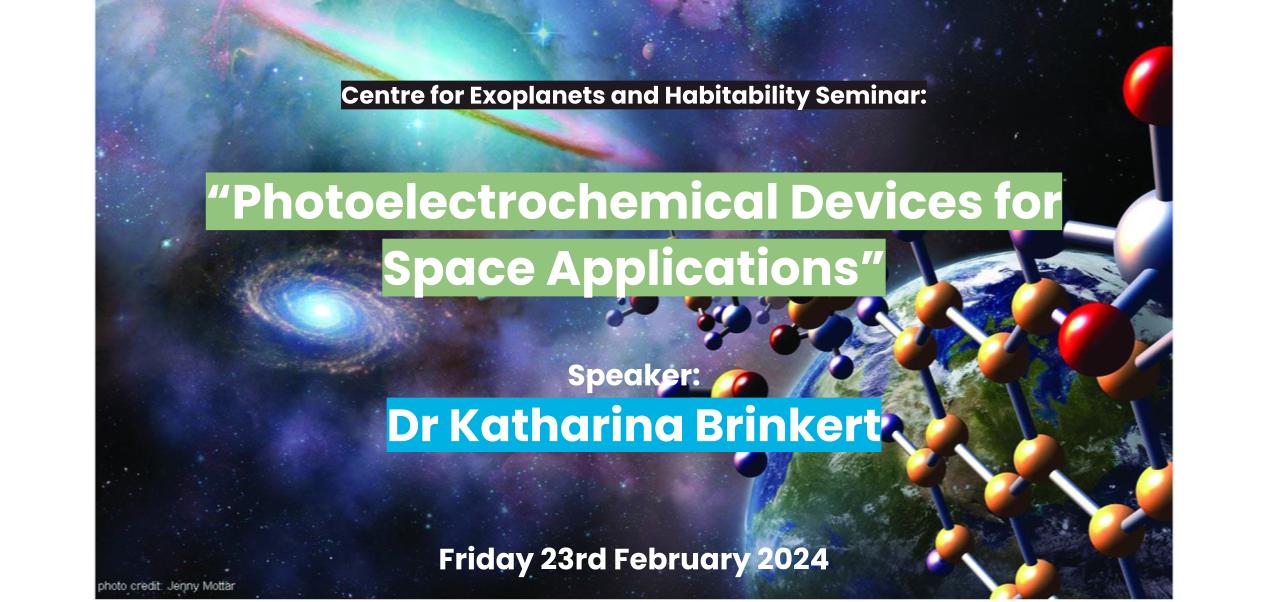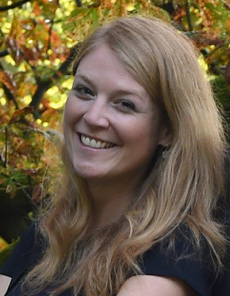Seminar 23rd February 2024 - Dr Katharina Brinkert

Welcome
Please join us at the Centre for Exoplanets and Habitability for a seminar with the Department of Chemistry's Dr Katharina Brinkert.
How to Attend
The seminar will be hosted both in-person and online - see details below for how to connect.
In-person - S0.20 at 14:00
Online - via Microsoft Teams accessible at this link
Photoelectrochemical Devices for Space Applications
Human deep space exploration will rely on efficient and sustainable life support systems for the production of oxygen and other chemicals as well as the recycling of carbon dioxide. Photoelectrochemical (PEC) devices are investigated for the light-assisted production of hydrogen and carbon-based fuels from CO2 within the green energy transition on Earth. Similarly to natural photosynthesis, they only require water and solar energy for the process and release oxygen as a by-product. Their monolithic, compact design comprising integrated semiconductor-electrocatalyst systems for light absorption, charge separation and catalysis as well as their sole reliance on solar energy makes them attractive for applications in space, where they can directly convert solar into chemical energy without requiring additional accessories.
This talk highlights our recent experiments with PEC devices in microgravity environments realised for 9.3 s at the Bremen Drop Tower and links results regarding device efficiencies to gas bubble management and optoelectronic simulations. We will discuss obstacles such as the limiting solar irradiance on Mars as well as the reduced gravitation on the Martian and lunar surface for the application of PEC and other electrochemical devices in these environments and point to practical, sustainable solutions how to overcome them.
When?
Friday 23rd February 2024 - 14:00 GMT
Where?
S0.20
or on Microsoft Teams
Who?
Everyone is Welcome!

Dr Katharina Brinkert
Dr Katharina Brinkert is an associate professor at the University of Warwick, and is passionate about natural and artificial photosynthesis research. Having worked in the fields of water-splitting enzymes, spectroelectrochemistry, and solar hydrogen production in microgravity, Katharina joined Warwick in 2019, and currently works on what she always wanted to: artificial photosynthesis research for solar-to-chemical energy conversion. Besides her passion for sciences, she enjoys sports, literature, film and theatre, music, philosophy and politics.
Please visit Katharina's webpagesLink opens in a new window for more information on her work.
